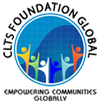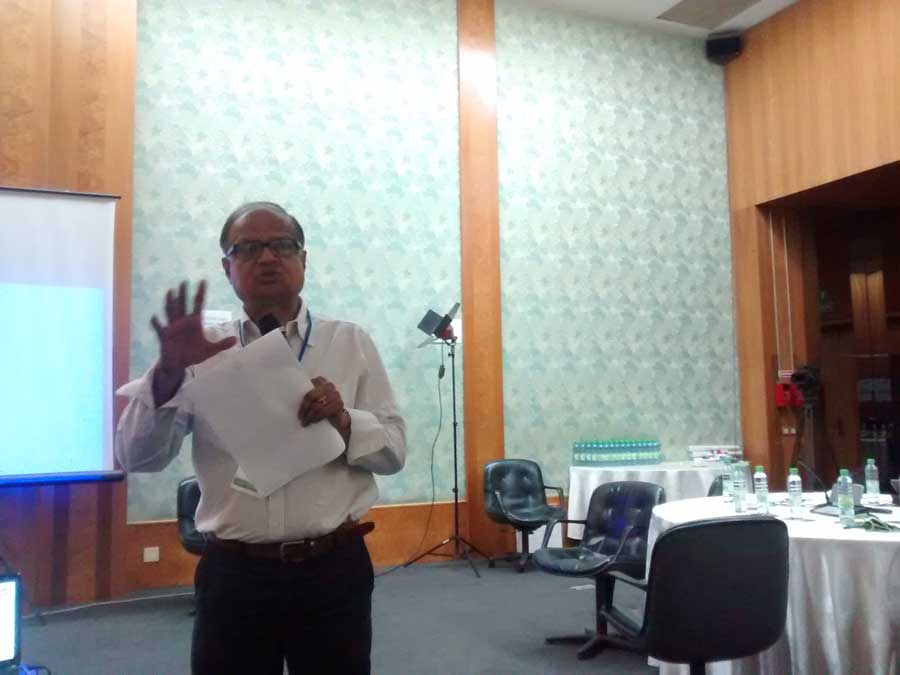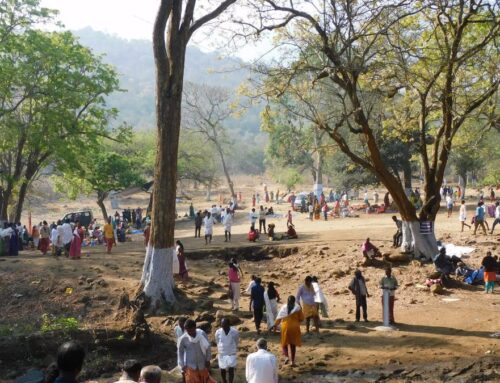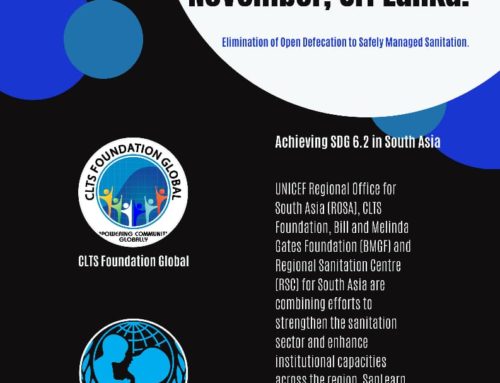
Dr Kamal Kar, Chairman, CLTS Foundation Global presents the initial framework of CRAP tool
On 27th May, 2015, UNICEF convened a session on ‘Scaling up Elimination of Open Defecation Programs with Quality’, which was moderated by Dr Kamal Kar, Chairman, CLTS Foundation Global and Ann Thomas, WASH Specialist, UNICEF Eastern and Southern Africa Regional Office (ESARO).
This session reviewed the challenges of scaling up elimination of open defecation programs, with a focus on at-scale national CLTS programs. Delegates from Mali, Zambia, Benin, Ghana, Somalia, Kenya, Guinea, Senegal, Niger, Angola, Burkina Faso, Lesotho, Mozambique, Tanzania, Sudan Chad, Guinea-Conakry, South Sudan, Mauritania, Uganda, Zambia and others participated in this session.
While giving an overview of current scenario, Dr Kamal Kar, Chairman, CLTS Foundation Global presented the initial framework of the CLTS Rapid Assessment Protocol (CRAP), a new monitoring tool developed by CLTS Foundation Global and UNICEF, which can be used to assess the health of CLTS programmes in a particular country context using a participatory methodology. Dr Kar also gave a brief overview of the initial findings from two countries, Mozambique and Kenya, where this tool was tested.

Chief Macha from Choma, Zambia
This was followed by a presentation by the Chief Macha from Choma, Zambia, who spoke about his experience and efforts to make his chiefdom open defecation free (ODF). CLTS was introduced in 2007 in the country and through Chief Macha’s efforts, his chiefdom doubled sanitation coverage from 50% to 100% in less than two years, thus attaining ODF status in November 2009, and becoming the first chiefdom in Zambia to be so recognized. His presentation underlined the importance of engaging the traditional channels of leadership in Zambian communities to affect change in collective sanitation behaviour.
The second presentation of the session was made by Catherine Mwango, Executive Director, Kenya Water for Health Organization (KWAHO) on ‘Refining 3rd Party Certification -Kenya’s national CLTS Protocol’. In Kenya, third party ODF certification is a very integral part of CLTS. It is conducted by an independent accredited agency not directly involved in the CLTS process to ensure objectivity of the CLTS process .Between 2010- 2014 Kenya Water for Health Organization(KWAHO) was the only organisation accredited by the Ministry of Health with support from UNICEF and the CLTS Foundation Global to conduct certification. She said that the National CLTS Steering Committee has now refined the CLTS Protocol because of the high cost (US$ 84.54) of the certification process and the delays in official declaration of villages as ODF, which were a result of only one organisation conducting the certification. Now, the refined the CLTS protocol makes provisions for training of third party Master Certifiers at the county level with KWAHO conducting Quality Control checks. Till now more than 70 Certifiers have been trained in 7 Counties within 6 months and the goal is to have 470 Master certifiers ( 10 in every County). Mwango said that the main challenges are possibility of local influence over the certification process and the results; quality control and the quality of reports by certifiers who may be non-graduates.

Julian Kyomuhangi, Assistant Commissioner, Environment Health Division, Uganda
Julian Kyomuhangi, Assistant Commissioner, Environment Health Division, Uganda spoke about driving a national strategy involving multiple partners and the key challenges for CLTS . She said that in Uganda, sanitation comes directly under the office of the Prime Minister and clear guidelines have been set for all stakeholders (government bodies, civil society and the private sector). She said that one of the encouraging developments in Uganda has been the formation of a WASH Parliamentary Forum, which was formed due to efforts spearheaded by WaterAid . The challenges that still remain are inadequate coordination at national and district local government levels, inadequate technical support to LGs, continued marginalization of sanitation and hygiene promotion and inadequate funding. To overcome these challenges she proposed the following actions: increase advocacy at all levels of government; push for elevation of the status of Environmental Health from a Division to a Department; build and strengthen capacity for sanitation and hygiene implementation; conduct research and development ; support knowledge exchange and partnership development; increase technical support supervision to local governments and resource mobilization

Mamadou Mouctar Balde, WASH Specialist, UNICEF, Benin
In the final presentation of the session, Mamadou Mouctar Balde, WASH Specialist, UNICEF, Benin spoke about the status of CLTS implementation in Benin. Though CLTS was introduced in Benin in 2009, the country got its first ODF village in 2014. Recent figures from UNICEF Benin show that the country is gradually getting on track. As per UNICEF, out of the 848 localities that were triggered 764 localities were confirmed ODF by the Ministry of Health. At present 194,847 people live in an ODF environment because of the efforts of all the key stakeholders to make the CLTS programme a success. Balde said that the target is to now to make all localities ODF by 2020 and for that some of the steps they have planned to take are: increase resource mobilization, operationalize the Sectoral Steering Committee and bring together all stakeholders in order to harmonize approaches and solutions.





Leave A Comment